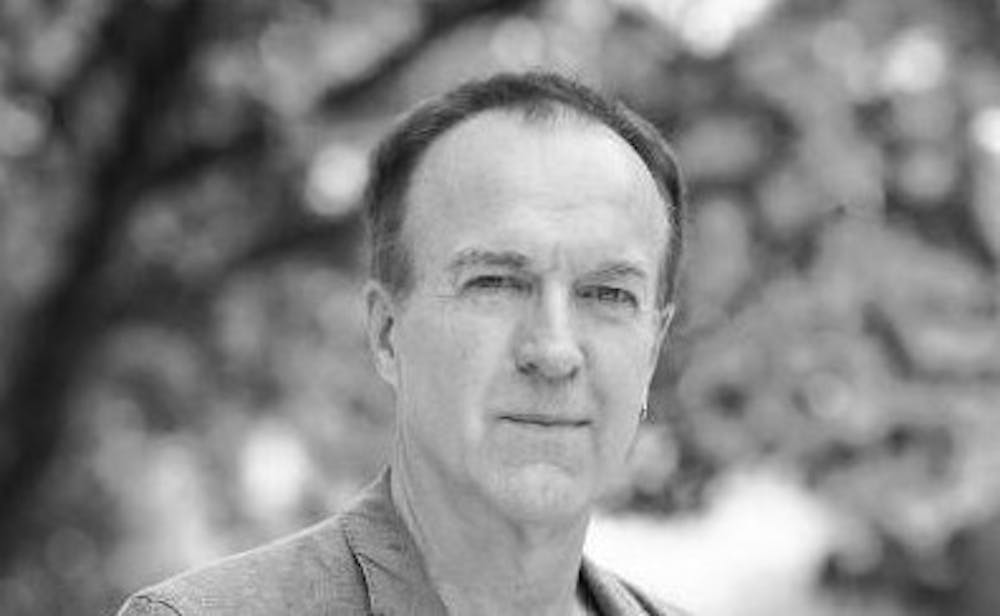As concerns about the impending climate crisis take the spotlight in political debates, similar controversy surges much closer to home. Divest Princeton is a growing group of students and alumni calling for the total removal of University funds from fossil fuel companies. So far, 735 alums, current students, and faculty members have signed an open letter to President Eisgruber ’83, but the movement has also been met with disapproval from certain administrators and professors. Robert Nixon, the Currie C. and Thomas A. Barron Family Professor in the Humanities and the Environment, and Stephen Pacala, the Frederick D. Petrie Professor of Ecology and Evolutionary Biology and director of the University’s Carbon Mitigation Initiative, are colleagues, friends, and on opposing sides of this emerging debate on campus. The Daily Princetonian spoke to these two professors to hear why one supports the movement, and the other, a climate scientist himself, disagrees.
“Divestment is going to happen,” says Rob Nixon, the Currie C. and Thomas A. Barron Family Professor in the Humanities and the Environment. “It’s not if, it’s when, and it would be fantastic to see Princeton in the vanguard.”
Nixon’s work lies at the intersection of the humanities and environmental justice. He is currently focused on using film, literature, and art to represent and understand populations living on the front lines of climate crises. More broadly, he looks at how the arts can precipitate social transformation.
“The status quo can seem adamantine, fixed, and yet I think that there are ways that the arts can change the imaginative frame,” he said.
Nixon’s stance on University divestment stems from personal history. He grew up in South Africa and left in 1980 as a conscientious objector to the enforced military conscription of all white men. As a political exile and a graduate student at Columbia University, he became intimately involved with campaigns for divesting from the apartheid regime. Though the current debate concerns corporations rather than a nation state and exists in different historical circumstances, Nixon noted that there are striking rhetorical echoes in the dialogue today.
“Some of the arguments against divestment that I see prominently articulated today … are very reminiscent of that period,” he said.
He noted that a pervasive viewpoint in the 1980s was to catalyze change through engagement rather than enforced isolation. Leaders of both the United States and Britain opposed divesting from South Africa for this reason, Nixon recalled.
“The South African regime saw that as a kind of affirmation, as a license not to change,” he said. “So what from the top-down looked like constructive engagement, from the bottom-up was appeasement. I see some of this reemerging in this particular struggle.”
He challenged the idea of a slippery slope, that removing funds from big oil would set a concerning precedent. Nixon countered that movements require a symbolic hub —and there isn’t one more powerful than the fossil fuel industry.
He has a rebuttal, too, to the claim that the University should stay out of politics in order to retain academic integrity and freedom.
“Staying in is also political,” Nixon said. “Princeton right now has an opportunity to assume moral leadership or to be an ethical laggard.”
Nixon is confident that the University will eventually divest, particularly with the increasing power of precedent. New York City, the country of Ireland, and the World Council of Churches are notable parties that have already committed to divestment. As the current generation begins to fill leadership positions, he continued, climate issues will come to the forefront.

Ultimately, Nixon asserted, the most scarce resource is not oil or water, but time. To Professor Pacala’s argument that the University should only divest once they can also boycott fossil fuels, Nixon emphasized that we should be doing everything to accelerate decarbonization in advance of it being feasible, and the first step in this is removing funds from the industry.
Nixon and Pacala agree wholeheartedly on one thing: the need for government subsidies to shift toward renewable energy. Only then, said Nixon, can the fossil fuel companies be forced to reconsider where their revenue will come from in the future.
“I think it’ll ultimately be a grassroots movement that pushes us to take the right steps to solving the climate crisis,” he said. “The leadership of institutions has to feel under pressure.”
And we, according to Nixon, are morally responsible for applying this pressure to hasten the transformation to a cleaner future.








